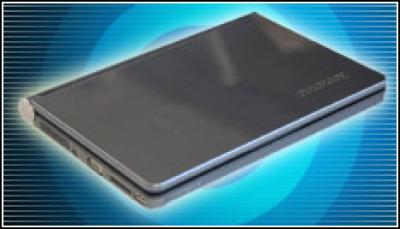Biometrics Aimed At Windows 7 Netbooks

Authentec, like competitor Upek, is thinking of new ways to revive the authentication market
Authentec, a popular provider of smart fingerprint solutions, will be introducing a family of hardware and software solutions on 17 Aug. While biometric solutions have primarily focused on the enterprise, this new solution, which Authentec is currently shopping around to manufacturers, is intended for consumers and netbooks.
“This significant portfolio expansion gives us a complete offering for our customers — whether they’re designing new 6-inch netbooks all the way up to 18-inch multimedia notebooks… ” said Authentec CEO Scott Moody in a statement.
The solution combines Authentec’s tiny new sensor, called Marcy, with its TrueSuite software, which the company says has been optimised for use with Microsoft Windows 7 and the new operating system’s Windows Biometric Framework (WBF).
While fingerprint sensors are normally associated with signing into corporate VPNs, when paired with netbooks, Authentec has imagined more personalised uses and time-savers. For example, each finger can be assigned a different application or two — simply swipe your right index finger and have Facebook and MySpace launch and sign you in automatically.
Or, for even greater personalization, an LED light on the sensor could flash a certain color when you have a new email from a particular friend. A swipe of the right ring finger, for instance, could then pull up Gmail, sign you in and launch that particular new email.
“Personalisation [is] a more important attribute in the consumer space than it is in the enterprise space,” Brent Dietz, Authentec’s communications director, told eWEEK.
“People treat a netbook like they would a cell phone or other personal item. They want to be able to quickly sort and separate their favorites from the rest of the information that’s out there. We can reduce the number of keystrokes and clicks to their favorites, while at the same time ensuring that only they have access to their personal information.”
Roger Kay, president of Endpoint Technologies, said the authentication market has slowed to nearly a halt. “Consumers don’t get it, they don’t care that much,” Kay told eWEEK.
“They think putting in a password is enough. And OEMS are finding they can’t charge customers for this stuff. … It’s a little like backup — everyone thinks it makes sense, but then it turns out that the actual number of people doing backup is tiny.”
Authentec, and competitor Upek, which together control most of the market, are trying to think of new ways to stimulate demand, and so it’s natural to focus on netbooks. However, netbooks traditionally have a low bill of materials.
“It makes it that much more problematic for Authentec, then, because the authenticator’s proportion of the bill of materials is higher in netbooks than in notebooks,” said Kay. “So in some sense, it’s the opposite of the way to go.”
However, while describing the personalization features as “fairly gimmicky,” Kay added, “But if I were in Authentec’s marketing department, I’d also want to get where the buzz is, and that’s with netbooks. They have to be doing something, and this is probably as good as it gets.”